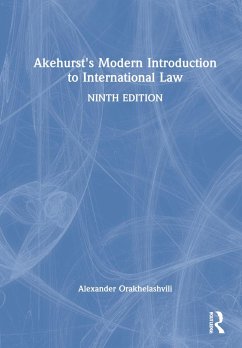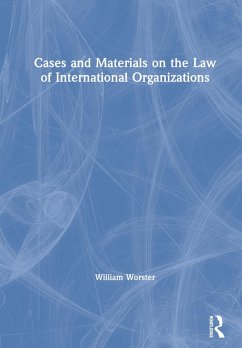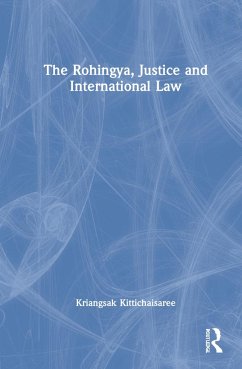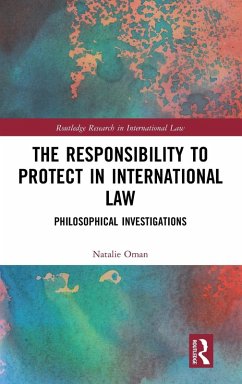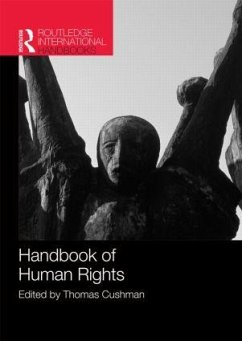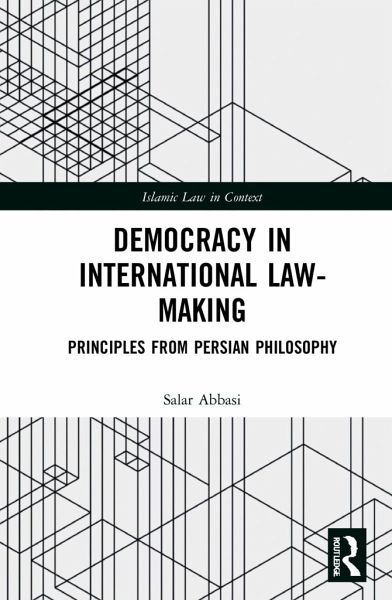
Democracy in International Law-Making
Principles from Persian Philosophy
Versandkostenfrei!
Versandfertig in 1-2 Wochen
168,99 €
inkl. MwSt.
Weitere Ausgaben:

PAYBACK Punkte
84 °P sammeln!
This book provides a critique of current international law-making and draws on a set of principles from Persian philosophers to present an alternative to influence the development of international law-making procedure. The work conceptualizes a substantive notion of democracy in order to regulate international law-making mechanisms under a set of principles developed between the twelfth and seventeenth centuries in Persia. What the author here names 'democratic egalitarian multilateralism' is founded on: the idea of 'egalitarian law' by Suhrawardi, the account of 'substantial motion' by Mulla ...
This book provides a critique of current international law-making and draws on a set of principles from Persian philosophers to present an alternative to influence the development of international law-making procedure. The work conceptualizes a substantive notion of democracy in order to regulate international law-making mechanisms under a set of principles developed between the twelfth and seventeenth centuries in Persia. What the author here names 'democratic egalitarian multilateralism' is founded on: the idea of 'egalitarian law' by Suhrawardi, the account of 'substantial motion' by Mulla Sadra, and the ideal of 'intercultural dialectical democracy' developed by R¿m¿. Following a discussion of the conceptual flaws of the chartered and customary sources of international law, it is argued that 'democratic egalitarian multilateralism' could be a source for a set of principles to regulate the procedures through which international treaties are made as well as a criterion for customary international law-ascertainment. Presenting an alternative, drawn from a less dominant culture, to the established ideas of international law-making the book will be essential reading for researchers and academics working in public international law, history of law, legal theory, comparative legal theory, Islamic law, and history.




